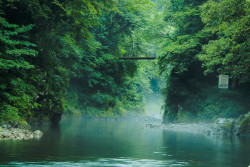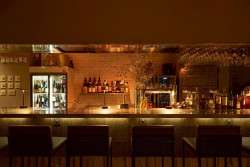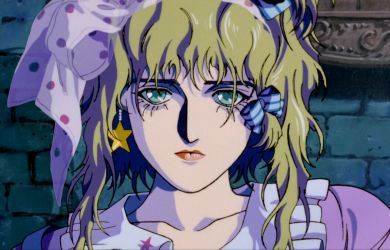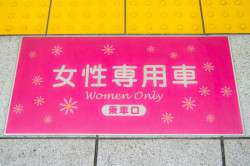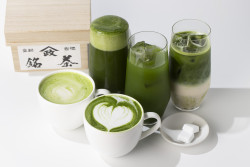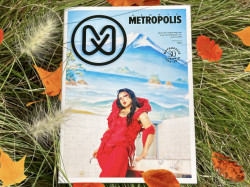
April 27, 2012
Kanji Korner
Some yojijukugo (four-character compounds) to get your kanji karma pumpin’
By Metropolis
Originally published on metropolis.co.jp on April 2012
海千山千
umisen yamasen = a sly old person
It’s said in Japanese folklore that a snake will turn into a dragon after having lived in the sea and the mountains for a thousand years apiece. This phrase, which literally translates as “sea thousand mountain thousand,” adapts the saying for humans; it denotes someone whose worldly experience has rendered him or her devious and cunning.
明鏡止水
meikyo shisui = clear and serene
This phrase will please anyone who still thinks of Japanese culture as the exclusive domain of refined Zen aesthetic. Literally meaning “clear mirror, still water,” it refers to a state of mind blissfully uncluttered by thoughts and worries. No wonder it’s rarely heard in contemporary Japan.
一石二鳥
isseki nicho = two birds, one stone
Identical in both literal meaning and application to the English proverb, this phrase is in fact one of very few four-character compounds to be derived from our language. For those with a lot of tasks on their hands, or just an unusual aversion to birds, the Japanese have coined isseki sancho and isseki yoncho respectively meaning “three” and “four birds, one stone.”
唯我独尊
yuiga dokuson = a holier-than-thou attitude
Buddhist mythology has it that when the Buddha was born (emerging fully formed from the right side of Queen Maya’s torso), he took seven steps, pointed to the heavens and declared, “Yuiga dokuson,” which can be translated as “Only I am holy!” Bold words for a newborn baby, the phrase is now used to describe those with a self-righteous, conceited attitude.
